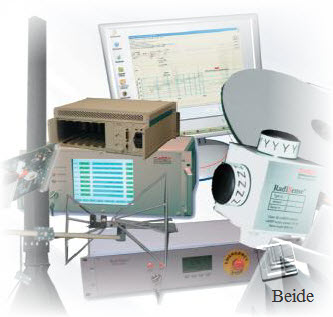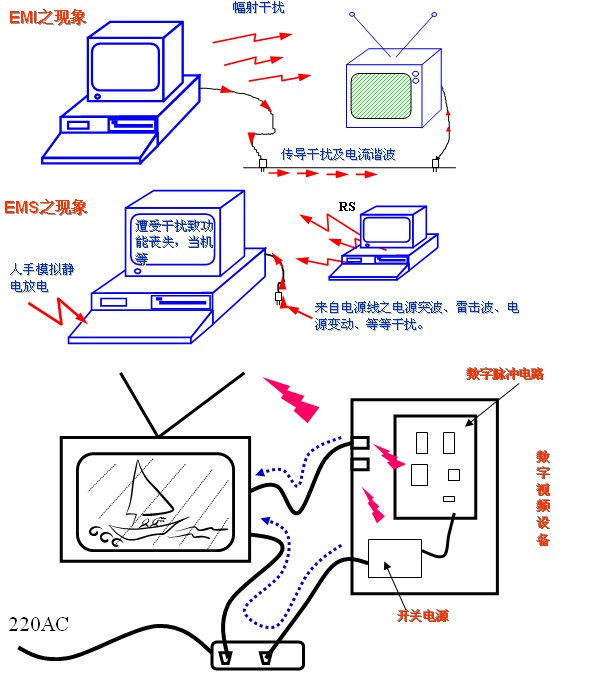Summary of Test Content
Electromagnetic Compatibility (EMC) refers to the ability of a device or system to operate in its electromagnetic environment in accordance with requirements without causing unbearable electromagnetic interference to any device in its environment.

Therefore, EMC includes two requirements: on the one hand, it refers to the requirement that the electromagnetic interference generated by the equipment to the environment during normal operation cannot exceed a certain limit; On the other hand, it refers to the equipment having a certain degree of immunity to electromagnetic interference present in the environment, namely electromagnetic sensitivity.
The International Electrotechnical Commission (IEC) standard defines electromagnetic compatibility as the ability of a system or equipment to operate normally in the electromagnetic environment in which it operates without causing interference to other systems and equipment.

Why do we need to conduct EMC testing?
Various operating power equipment are interrelated and interact with each other in three ways: electromagnetic conduction, electromagnetic induction, and electromagnetic radiation, which can cause interference, impact, and harm to operating equipment and personnel under certain conditions. The discipline of electromagnetic compatibility (EMC), which emerged in the 1980s, aims to study and solve this problem. Its main purpose is to study and solve the mechanisms of interference generation, propagation, reception, suppression, and corresponding measurement and measurement technologies. Based on this, clear regulations are made for the level of interference, anti-interference level, and suppression measures generated according to the most reasonable principle of technology and economy, so that equipment in the same electromagnetic environment is compatible, At the same time, it does not introduce impermissible electromagnetic disturbances to any entity in the environment.
EMC includes EMI (interference) and EMS (susceptibility), which means electromagnetic interference and electromagnetic immunity. EMI (Electromagnetic Interference) describes the degree of electromagnetic radiation interference a product has on other products, whether it will affect the normal operation of its surrounding environment or other electronic or electrical products within the same electrical environment; EMS (Electromagnetic Immunity) describes whether an electronic or electrical product will be affected by interference from its surrounding environment or other electronic or electrical products within the same electrical environment, which will affect its normal operation.
If the product does not pass EMC testing, the produced product will have many of the above issues that cannot be solved, so it is necessary to pass EMC standards testing to achieve the integrity of product performance.
Introduction to EMC Testing
The full name of EMC is Electro MagneticCompatibility. It refers to the ability of a device or system to function normally in its electromagnetic environment without causing unbearable electromagnetic interference to anything in that environment. EMC is an important indicator for evaluating product quality.